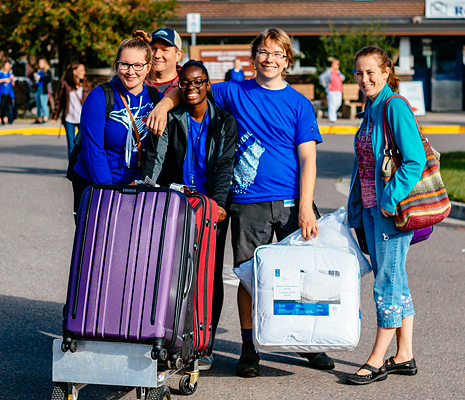
Residence & Housing.
Your new home away from home!
At Lakehead University, we believe where you live plays a key role in your university experience. That’s why we offer guaranteed housing for all high-school students, ensuring you have a safe, friendly, and inclusive place to call home while you focus on your studies and enjoy campus life. But if you decide to live off-campus we have resources for you too!
Apply for residence
